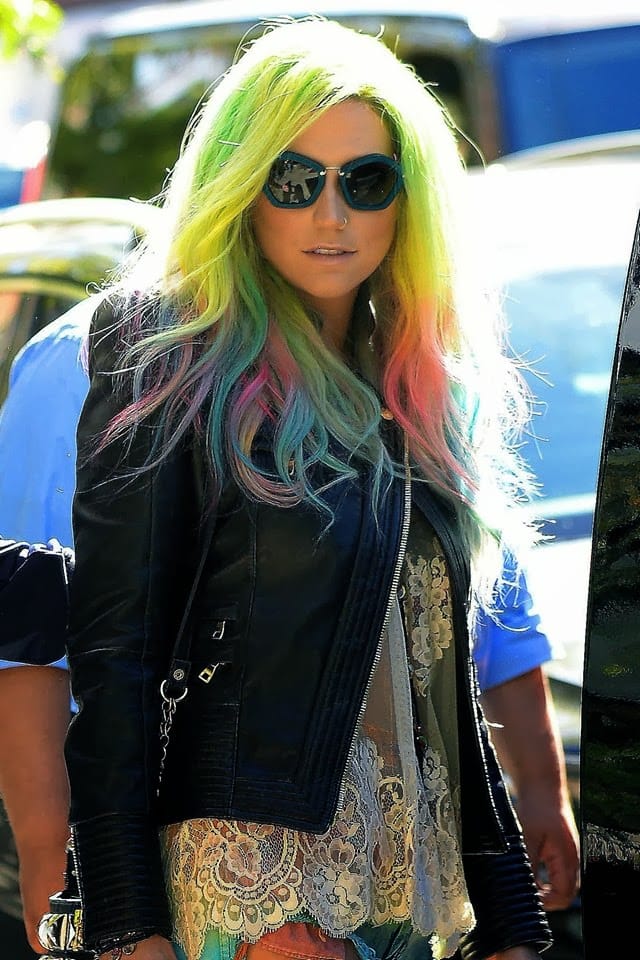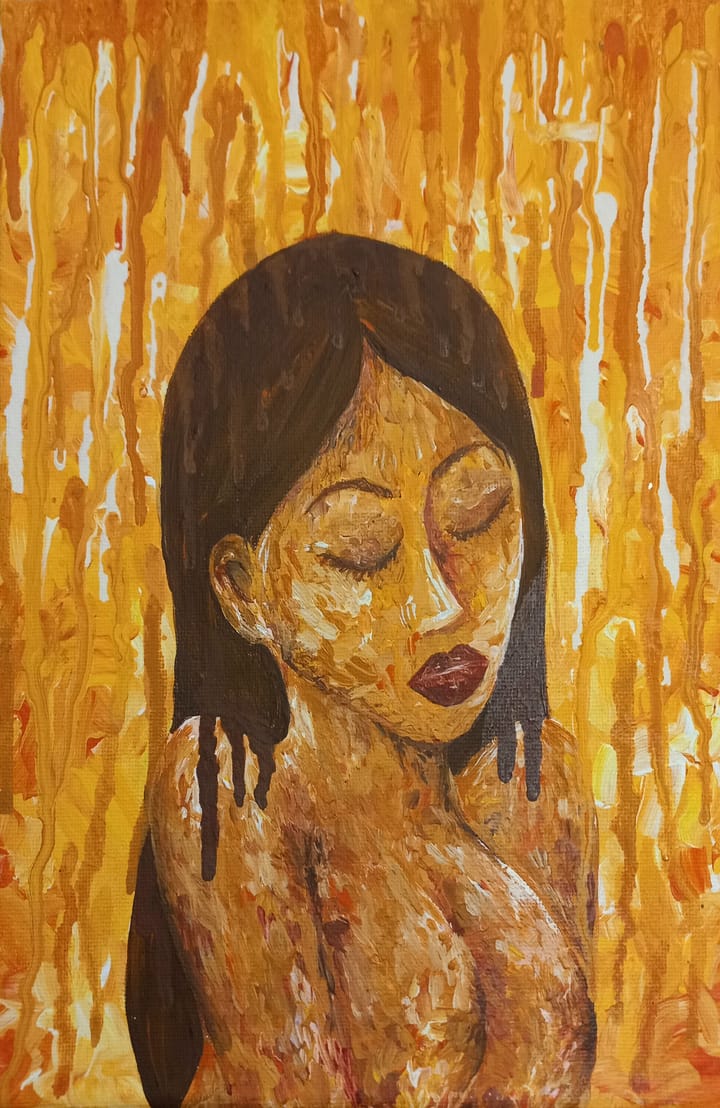Kesha Returns After Dramatic Trial with an Inspiring Message

Five years after her second album “Warrior” was produced, Kesha, now going by her birth name instead of the stage name Ke$ha, released her album “Rainbow.” At the age of 30, the pop star, known for her 2009 hit song “Tik Tok,” produced this heartfelt comeback album, an homage to her triumph over the trauma she faced during her career. For the last five years, Kesha has fought for creative control of her music and sued her longtime producer, Dr. Luke (who discovered her when she was 17 and convinced her to drop out of high school to pursue music), for “sexual assault and battery, sexual harassment, gender violence, civil harassment, violation of California’s unfair business laws, intentional infliction of emotional distress, negligent infliction of emotional distress, and negligent retention and supervision,” according to the New York Supreme Court. Her fans rallied behind her during this extended legal battle, and #FreeKesha was trending on social media for weeks. The details of the case are quite complicated, and ultimately the judge decided that her allegations of rape were true but that the five-year statute of limitations had passed, and she was not allowed to leave her contract with Dr. Luke under Sony Studios. During these years, Kesha communicated openly with her fans through social media and shared her experience of going to rehab to recover from her eating disorder. She claims that she was offered freedom from her contract if she retracted the rape allegation and publicly apologized for lying, which she spoke out against on social media.
While the lawsuit prevented her from producing music, it did not stop her from writing it. She took on some side projects during this time, including joining a country music/classic rock band called “Yeast Infection.” Then, out of nowhere in mid-July, she announced the release of her single “Praying” and the news and excitement for her new album spread over the internet. On Aug. 11, “Rainbow” was released, and it has reached No. 1 on Billboard’s Top 100. Most songs on the album are wildly different from her original music, which was electronic pop. The album contains a variety of styles, including folk, country and pop, while sending a powerful message about rising above trauma and self-empowerment as a woman. If space allowed, we would talk about every song on this album, but here are some of our favorites grouped by style and message.
“Rainbow”
“Rainbow” is the first song Kesha recorded since her last album as well as the title song of the album. It was recorded and produced by her friend and alt-rock star pianist and singer Ben Folds. The song clearly means a lot to Kesha and has helped her get through these difficult past 5 years. For her, rainbows symbolize hope and the ability to overcome. The first line of the song is, “I used to live in the darkness/ Dress in black, act so heartless/ But now I see that colors are everything.” Instead of becoming jaded and letting what she’s gone through get the best of her, she learns to let go and see beauty in the world in spite of the people who have hurt her. In “Rainbow,” Kesha comes into her own vocally. She sounds strong, bright and beautiful, and her voice seems to soar high when she ad-libs over a sweet orchestral background. The music video for “Rainbow” is a live video of the recording session for the song. It is intimate, as Kesha surrounds herself with fellow musicians and friends, and it’s clear that there’s nothing fake or exaggerated about it. It’s just Kesha working through her own problems and being an inspiration to girls with similar struggles. What I love about this song as a triumphant recovery song is that there are moments where she speaks directly to her fans, saying that she found a way out of the darkness and they can too. The love Kesha has for her fans — particularly her LGBTQ+ fans because rainbows are unignorably part of gay culture — is beautiful and meaningful in a way that’s hard to match. She has repeatedly thanked her fans for sticking it out with her, and with this new album, there has been a huge pay-off.
“Bastards” and “Woman”
“Bastards,” the opening number of the album, has the acoustics of a folksy ballad but the lyrics of a vengeful song, “I got too many people I got left to prove wrong/ All those motherf—ers been too mean for too long.” Her mellow voice croons over all the curse words in the book, imploring the listener not to let negative people get the best of them. It sets an important tone for the rest of the album, where she addresses the people who have wronged her but does not let anger take over, “They won’t break my spirit/I won’t let ’em win,” she sings. Along with “Rainbow,” it’s the kind of song you embrace most when the world seems determined to drag you down. On its flip side is “Woman,” my personal favorite on this album. Featuring The Dap-Kings playing the horns, this high-energy song is an inspirational anthem for millennial women. Kesha reminds us, and herself, that everything she has is earned and she doesn’t need a man to tell her she’s worth something: “Don’t buy me a drink, don’t make my money, don’t touch my weed, don’t call me honey.” Reminiscent of her old style, “Woman” is the type of song whose lyrics you can’t not scream at the top of your lungs when driving with your girlfriends.
“Hymn” and “Praying”
After an upbeat feminist chant, Kesha winds down again with her next track, “Hymn.” Following a rhythmic finger-snapping beat, she sings about being young and carefree in the face of adversity. Like “Woman,” “Hymn” feels like a message of solidarity for her millennial fan base: “This is a hymn for the hymn-less, kids with no religion, yeah we keep on sinning but yeah we keep on singing.” This could also be interpreted as a message to LGBTQ+ youth, a group she has been a strong advocate for throughout her career, who are often rejected from religious spaces. Either way, this song establishes what religion means to Kesha before moving on to her next religious themed song, “Praying.” This was the first single released and has been on the radio for several weeks now. The ballad reads like a direct message to Dr. Luke, telling him that she hopes he finds peace and becomes a better person while she moves on. It’s an extremely powerful song with chilling instrumentals and angelic backup singers. However, it’s the type of single that’s better in the context of the whole album. Listening to Kesha describe working through her pain in “Bastards,” “Let ’Em Talk” and “Rainbow” makes her message in “Praying” more impactful. “Sometimes I pray for you at night, Someday, maybe you’ll see the light,” she sings. “Oh, some say, in life, you’re gonna get what you give/But some things only God can forgive.”
“Hunt You Down” and “Boots”
“Hunt You Down,” the ninth song of the album, is the best example of Kesha’s shift in genre due to its decidedly old-school country feel. She even uses the phrase “Yodel-odel-oh,” to show you just how country it gets. By threatening to hunt down her lover if he strays, Kesha claims the same kind of agency that Miranda Lambert, The Dixie Chicks and Carrie Underwood did in “Before He Cheats.” The song, like many others in her album, is aggressive in a purely feminine, down-to-earth way. She sings about her love but warns us that she has power and she will not be taken advantage of. “Boots” is another twisted love song, although its edge comes from musical rather than lyrical elements. She sings about how great this guy makes her feel, but underneath the words is this creepy, repeated sequence of notes. In the chorus there is nothing but her voice and the haunting melody underneath it on guitar. The verses give the feeling of being lost in a crowd, like you’re at a club and can’t find anyone you know. Something does not sound quite right about this love song, and it sends a similar message about the dangers of love as the one in “Hunt You Down.” Compared to Kesha’s earlier work, which tends to speak more superficially about people and feelings, the love songs in “Rainbow” provide a much more sophisticated look at the complexity of romantic relationships.
“Old Flames Can’t Hold You Down” (feat. Dolly Parton) and “Godzilla”
Kesha wrote every single song on this album excepts for these two, which were written by her mother Pebe Sebert, a professional songwriter. Nine years before Kesha was born, Sebert co-wrote Dolly Parton’s 1978 hit single, “Old Flames Can’t Hold a Candle to You.” Almost 40 years later, Kesha sings her mother’s song with Dolly Parton on her album as a tribute to their close relationship. Pebe also wrote “Godzilla,” a very cute ballad describing what it would be like to date Godzilla. The wistful tune is guaranteed to make you smile as she describes what would happen when you introduced Godzilla to your mom.
“Rainbow” is such a successful comeback album because Kesha emphasizes letting go. She does not hold on to any of the hate people have shown her. Even the song most directly targeting her abuser is about how she’s become a better person and she hopes he will too; she does not get angry or want revenge. Kesha also has fun with the album. There are so many energetic, upbeat tunes on this album — it isn’t all doom and gloom, as one might predict. It seems that after all the drama we’ve seen and all the scars she’s received, Kesha shares a happy ending with her listeners. With “Rainbow,” Kesha takes all she has learned and all that made her a better person and passes it on to us. Simultaneously, she maintains a sense of fun and lightheartedness. I never expected that I would like a Kesha album this much, but Kesha has made spectacular art by sharing her experience and letting go of the past. At a time in which people become obsessed with every little thing others do to harm them, Kesha’s new music is a refreshing break from the norm. We also, perhaps for the first time, get to witness Kesha’s lyrical genius. As she says in the album’s outro, “I’m nothing more than recycled stardust and borrowed energy, born from a rock, spinning in the aether.”





Comments ()